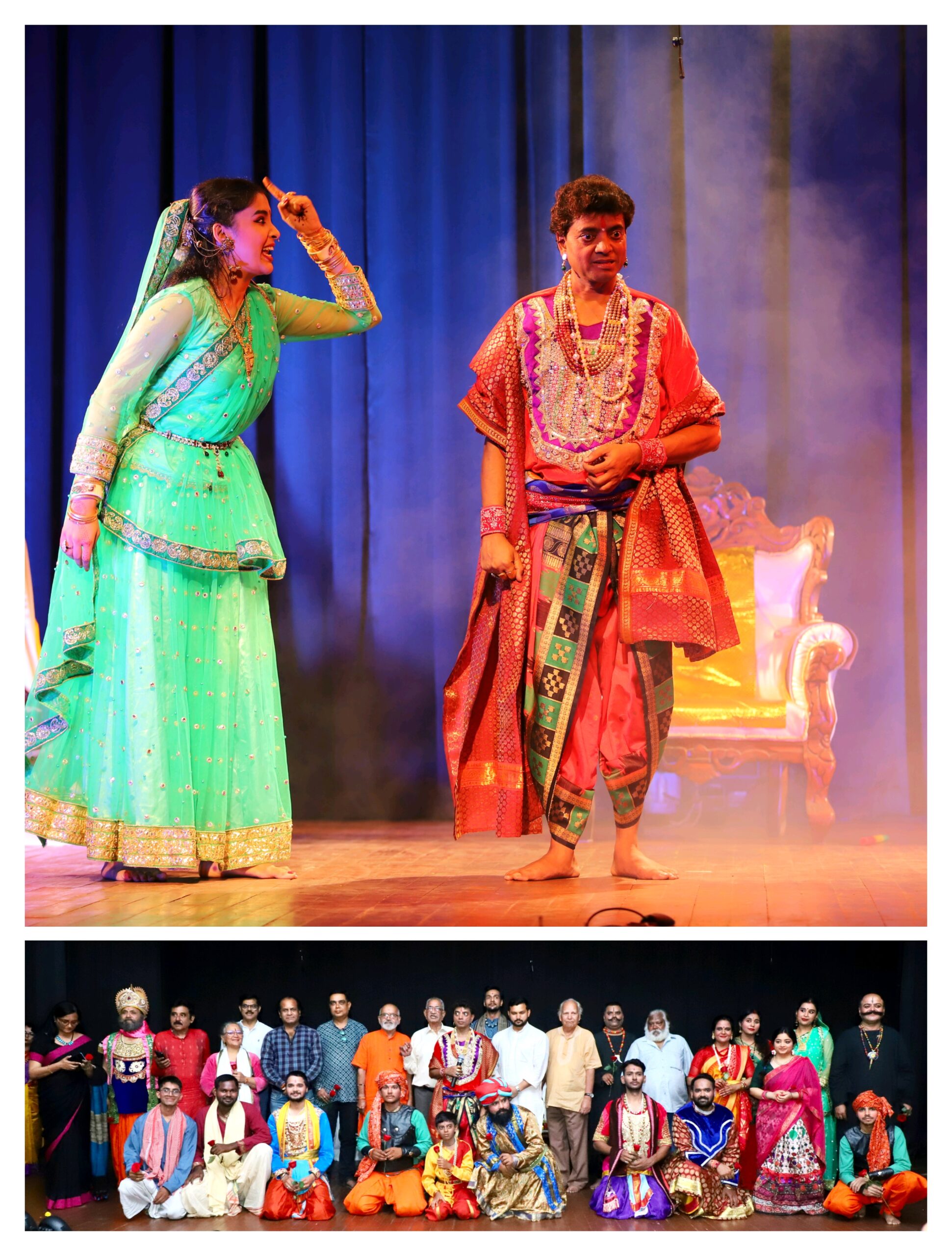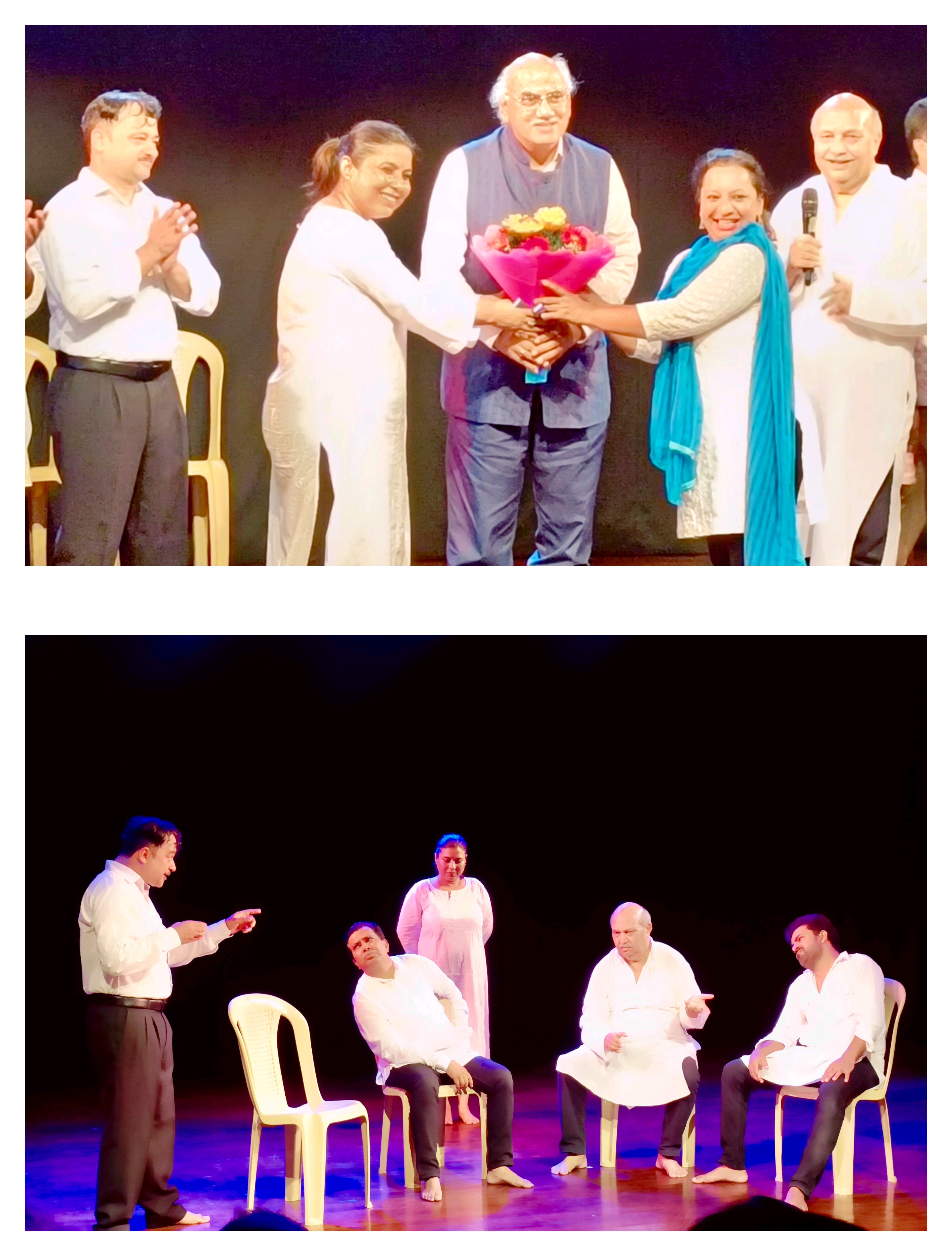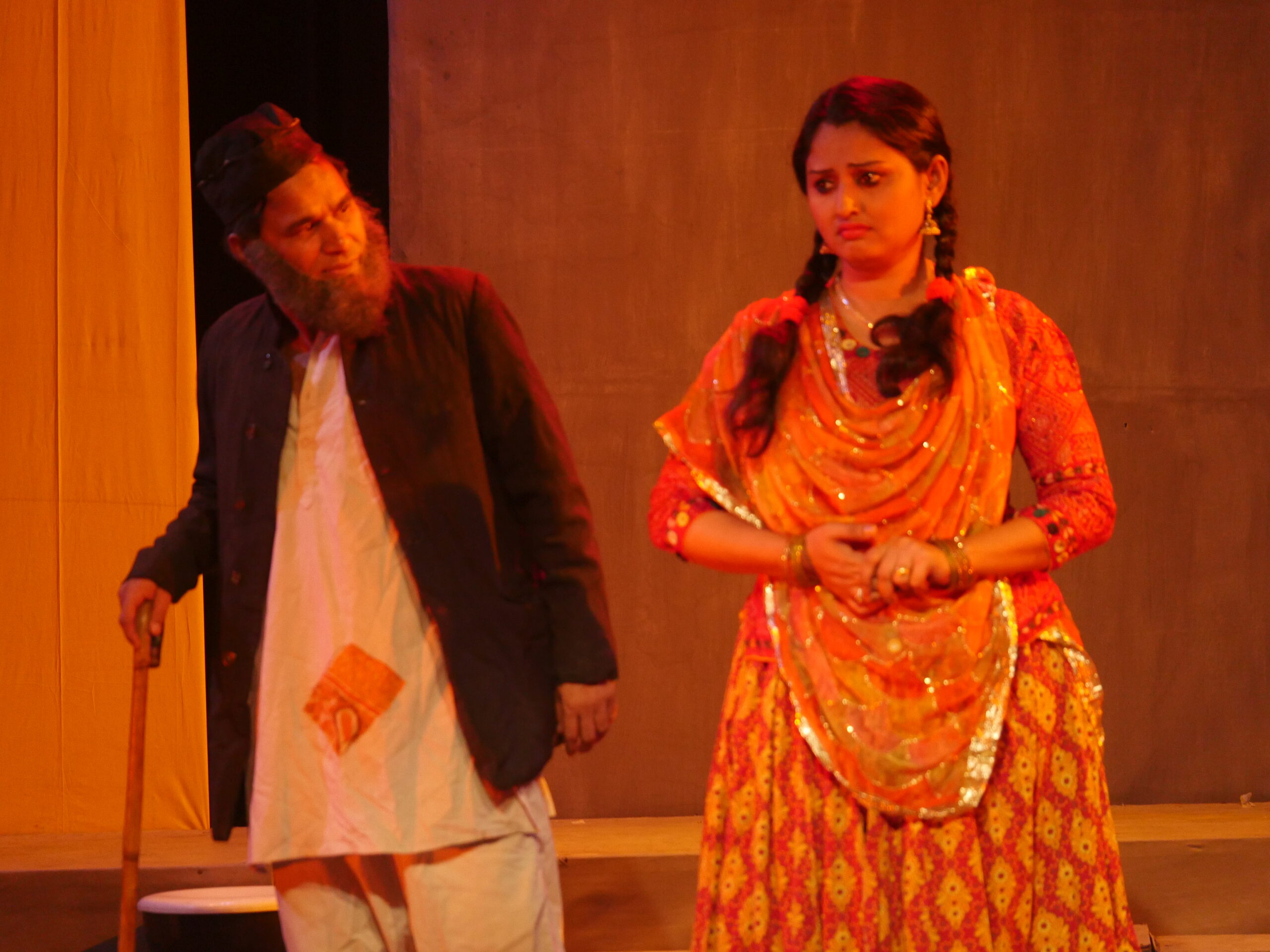Katha Ek Kans Ki — A Powerful Stage Production by Noida Theatre

Noida Theatre, in collaboration with the Ministry of Culture, Government of India, recently staged the play “Katha Ek Kans Ki” as the culmination of a 45-day intensive workshop under the Parak Rangmanch initiative. The production brought a refreshing experience to Delhi’s theatre audiences. The play, written by the eminent playwright Padmashree Daya Prakash Sinha, was envisioned and directed by young theatre practitioner Praveen Kumar Bharti.
Unlike the conventional mythological portrayal, Katha Ek Kans Ki presents Kans in a new light. Here, Kans is not just the villain of the Puranas, but a timeless symbol of power-hunger and ambition. He emerges as a man consumed by authority, estranged from relationships, and trapped in a life of violence and loneliness. His journey is revealed through complex interactions with characters like his wife Asti, his beloved Swati, his friend Pradhot, and his minister Pralamb.
Praveen Kumar Bharti, essaying the role of Kans himself, held the audience spellbound with his performance. His piercing gaze and powerful delivery brought alive both the terrifying and the tragic shades of Kans. Other performers—R.N. Srivastava, Rahul Varshney, David Solanki, Ganesh Kumar, Sanjay Kumar Yadav, Rahul Sharma, Aditya Sharma, Yogendra Narayan Yadav, Anshu Kapoor, Jeevesh Praveen, Mridula Nayak, and Pallavi Shrimant Sahu—delivered memorable performances. Artists such as Suvralina Mohanty, Dharam, Sanjay Kumar Yadav, Yogendra, Kisan Kumar Pandit, Jitendra Handa, and Abhay Mishra also captivated the audience. Emotional moments, such as Swati’s tearful expressions or Asti’s poignant portrayal, moved the auditorium deeply. Devaki’s suffering, Pralamb’s shrewdness, and the innocence of young Jeevesh Bharti added striking layers to the narrative.
The visual and aural artistry of the play was heightened by Meeta Mishra’s lighting design and Mukesh Jha’s music, while the costumes and stage design further enriched the dramatic atmosphere.
The performance drew repeated applause, particularly during the scenes of Kans’s inner conflict and ultimate downfall. The final moments left the audience in profound silence, compelling reflection on the destructive nature of tyranny.
Katha Ek Kans Ki concluded with a powerful message: every dictatorship inevitably ends in self-destruction.
This production was not merely a play but the remarkable outcome of the Parak Rangmanch workshop—where youthful energy, creative direction, and collaborative spirit combined to create a theatrical experience destined to linger in memory.

